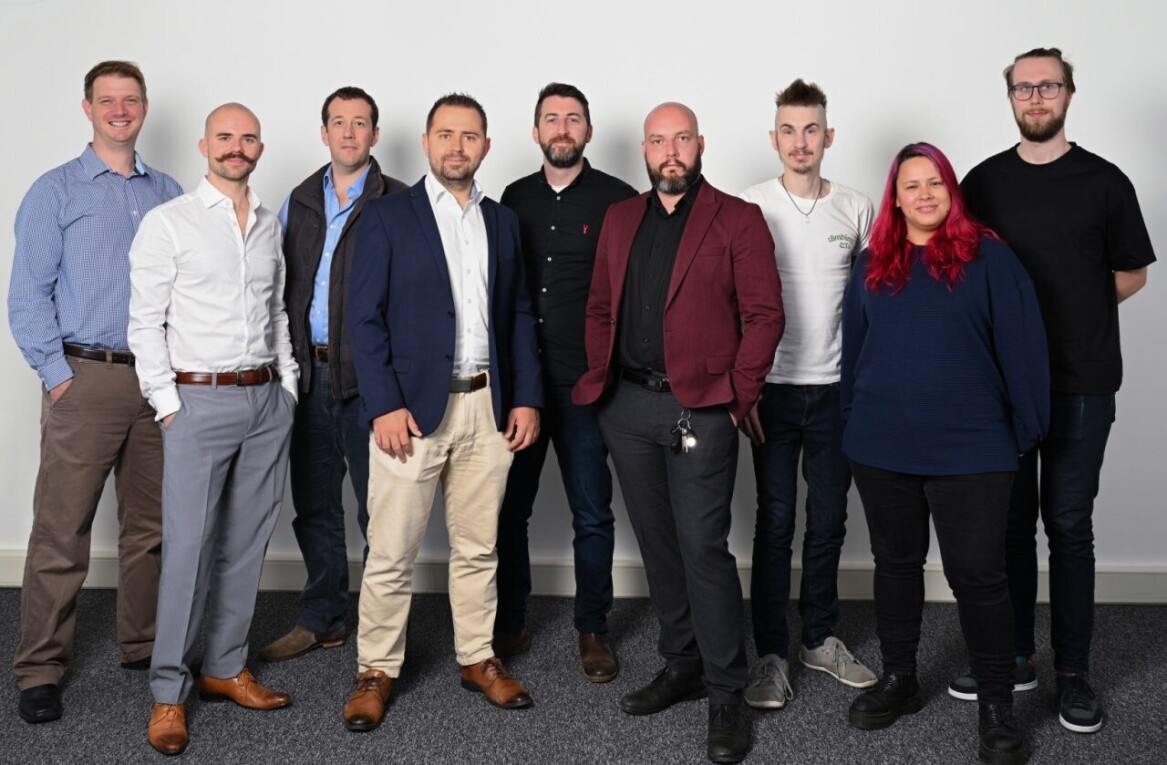
Timo Rein is the cofounder & CEO of Pipedrive, and was previously the cofounder of Vain & Partners – the leading Sales Training company in the Baltics.
If you’re reading this, there’s a good chance that you’re an American, and that means you don’t know how good you have it. Nowhere in the world offers the kind of business climate that is so conducive to innovation, creativity and success for the aspiring entrepreneur.
I happen to be from Estonia, a small, but fiercely proud country near the Baltic Sea, one with a burgeoning startup scene that’s full of driven, intelligent and hungry entrepreneurs.
There’s no reason that Estonia shouldn’t become a European tech powerhouse, but the biggest thing holding them back, in my opinion at least, is the outlook that most Estonians have when it comes to starting your own enterprise.
The startup attitude
In the US, San Francisco is synonymous with startups, and the attitudes and opinions that permeate the tech space, from New York to Austin to Silicon Valley, is largely derived from what’s considered the norm in the 415 area code.
But they haven’t quite made the leap across the Atlantic. Things that we take for granted, like a culture of encouraging risk-taking, a “big picture” way of thinking – even the way startups are expected to grow – are completely flipped upside down once you touch down in countries where a voltage converter is necessary.
Interpretations for failure
The most jarring difference for an American born-and-bred entrepreneur would be the Estonian approach to failure.
In Estonia, people who set out to build a great business can’t expect to be greeted with encouragement and support from the broader community. Going out on your own, taking risks and trying to forge your own path are greeted with skepticism at best, and outright predictions of failure at worst.
When the venture eventually fails (as most startups do), most of the public will conclude with a self-righteous “I told you so.” Your failure being chalked up to the fact that you are a born loser, and you will be marked as one for life in the eyes of many.
In Californian start up culture, if you fail, it usually means you’ve been brave enough to execute, and next time around, it will be taken as a sign of your ability to bounce back after a failure. In California, you are admired, rather than shamed, for your failure. there’s almost a celebration of failure – the acknowledgment that doing something wrong can teach you to be better.
Failcon has been wildly successful – and included some incredibly well-celebrated entrepreneurs, including former New York Times (and current Yahoo!) columnist David Pogue and Uber’s Travis Kalanick. The valley is surprisingly maternal.
The same sort of “crabs in a bucket” mentality also impairs Estonian entrepreneurs from thinking big enough to go for it when crafting their startup. With just 1.34 million people in the entire country, and the kind of mentality that stifles entrepreneurship, most founders have only had their eyes opened when they’ve left the country and seen the potential that exists outside Estonia and Europe at large.
One of my friends living in Estonia summarized it best:
“I need to get outside every now and then to make sure I don’t become a small man with small ideas.”
The culture almost holds back the mass-creation of entrepreneurs, creating a lack of entrepreneurs to rely on for the kind of mentorship you’ll find in the valley.
Where you’ll find thousands of successful (Read: gainfully employed, large or profitable – or both – businesses) entrepreneurs in the valley, you’ll find 10-20 people in Estonian who can talk from experience about growing a software company or a successful startup.
Or at least ones that won’t immediately assume you’ll crash and burn.
Then there’s the geographical restraints
American entrepreneurs get to enjoy an enormous market for their products, with multiple software-loving and integrating cities and a population that is literally 300 times as large.
If you want to succeed in Estonia as a software business, you had better think about how to leverage customers in Europe, America and Asia as well, otherwise you’ll find it incredibly difficult to reach a sustainable scale.
Forgive my pessimism – it’s not all bad. The need to be globally successful from day one puts many Estonian early startups in a position where they actually can serve international markets, a task many US startups will face only after they’ve conquered their home continent.
The rosey “you can do it!” mentality of the valley is incredibly positive and encouraging, but also can lead entrepreneurs into a false sense of security. The harsh beginnings of an Estonian startup can lead to incredible success if you can break out of the initial (and slightly depressing) beginnings.
The small-scale environment has its advantages. A trial-by-fire environment like ours means that we can’t hope to launch a company without revenue.
The capital and ecosystem is not in place to give entrepreneurs the prospect of building something that doesn’t make you money. You have to have even a few paid users, otherwise you’ll find that you can’t afford even more important things, like eating and sleeping in a house with electricity.
You’ll also find a much more committed mindset in Estonia than you will in California. In Estonian startup culture, founders usually proudly and stubbornly work on the idea they believe in for years, even if it does not take off immediately or fails to show the much sought-after “backwards L shaped” growth trajectory.
In US startup culture, the tendency to hop from one idea to the next is more common, with founders working on one project for 12-24 months, and then dropping it if it does not bring great results.
Persistence is a cultural and historical trait of the Estonian, in part due to our country’s great struggles in the past and in part due to the fact that there just aren’t that many ventures available.
Don’t get me wrong: I don’t think that the “succeed or fail big and quickly” mentality is inferior to committing long-term. I just don’t know which mentality will emerge as the winner for any particular startup.
Sometimes it seems to take decades of commitment to one idea to make something great happen, and sometimes it’s a matter of executing the hell out your idea during 24 months. Just ask Evan Spiegel.
Image credit: Shutterstock/PromesaArtStudio
Get the TNW newsletter
Get the most important tech news in your inbox each week.



